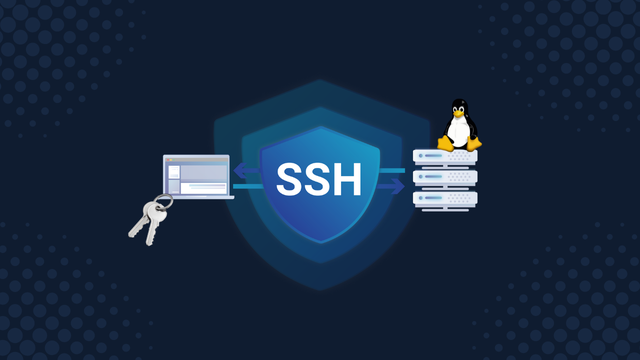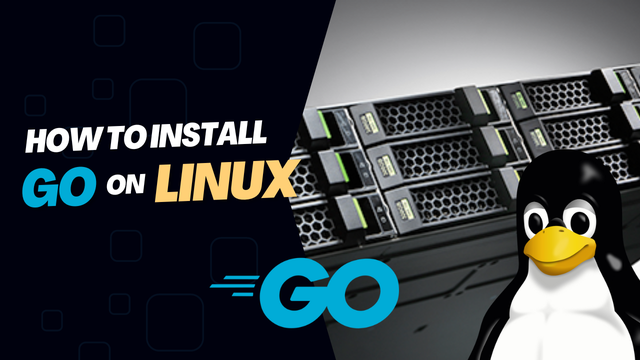306: Flipping FreeNAS for Fedora
June 19, 2019, 3:15 a.m. (6 years, 8 months ago)
0 Comments
We attempt something you never should, we live flip our FreeNAS ZFS install to a Fedora server.
Plus a REALLY weird PC, and our command line picks.
Special Guests: Alan Pope, Brent Gervais, Martin Wimpress, and Neal Gompa.
Links:
- Netflix Uncovers TCP Bugs Within The Linux & FreeBSD Kernels - Phoronix — As Netflix's first security bulletin for 2019, they warned of TCP-based remote denial of service vulnerabilities affecting both Linux and FreeBSD. These vulnerabilities are rated "critical" but already being corrected within the latest Git code.
- Initial Benchmarks Of Microsoft's WSL2 - Phoronix — Since the release of WSL2 as a Windows 10 Insider Preview update this week, we've been putting the new Windows Subsystem for Linux 2 under some benchmarks compared to WSL1 and bare metal Linux. While WSL2 has improved the I/O performance thanks to the new Hyper-V-based virtualization approach employed by WSL2, the performance has regressed in other areas for running Linux binaries on Windows 10.
- The Future of Docker Desktop for Windows - Docker Engineering Blog — ith WSL 2 integration, you will still experience the same seamless integration with Windows, but Linux programs running inside WSL will also be able to do the same. This has a huge impact for developers working on projects targeting a Linux environment, or with a build process tailored for Linux. No need for maintaining both Linux and Windows build scripts anymore! As an example, a developer at Docker can now work on the Linux Docker daemon on Windows, using the same set of tools and scripts as a developer on a Linux machine
- Check Out the Snap Store's New Distro Install Pages - OMG! Ubuntu! — In an effort to improve the experience for users wishing to install Snap apps on non-Ubuntu distributions, the Snapcraft team have launched distro-specific store pages for Snap apps.
- Call for testing: chromium-browser deb to snap transition - Desktop - Ubuntu Community Hub — The chromium browser has been available as a deb package for all supported Ubuntu releases and as a snap since version 60, and the time has come to start transitioning away from the debs.
- Atari VCS goes on $250 pre-order with Linux running on Ryzen R1000 — Atari has opened $250 pre-orders for its Atari VCS retro game console, which will run Linux on the new AMD Ryzen R1000 SoC. Indiegogo backers are set for a December release while new orders will be fulfilled in Mar. 2020.
- A EALLY Weird PC… - System76 Thelio Review — There’s more than one company that makes its own operating system and hardware, and today, we’re taking a look at System76’s Thelio, an open source design you can build yourself.
- Fedora · zfsonlinux/zfs Wiki — Only DKMS style packages can be provided for Fedora from the official zfsonlinux.org repository. This is because Fedora is a fast moving distribution which does not provide a stable kABI. These packages track the official ZFS on Linux tags and are updated as new versions are released.
- Replacing a failed drive in ZFS on FreeBSD – Dan Langille's Other Diary — One of my new hard 3TB drives was acting up. I removed it and sent it off to be replaced. In the meantime, I received some 5TB drives and I added one of them into the existing vdev of the zpool.
- Sharing ZFS Datasets Via NFS | Programster's Blog — The great thing about ZFS is that it is very easy to split your "pool" into as many datasets as you like. Each dataset is treated like its own filesystem, with its own rules and settings, which means with regards to sharing over NFS, that you can share more securely as client's will not be able to reach out of the bounds of that dataset/filesystem that you decided to share.
- How to easily configure WireGuard - Stavros' Stuff — At its core, all WireGuard does is create an interface from one computer to another. It doesn’t really let you access other computers on either end of the network, or forward all your traffic through the VPN server, or anything like that. It just connects two computers, directly, quickly and securely.
- Use Public Key Authentication with SSH — Password authentication is the default method most SSH (Secure Shell) clients use to authenticate with remote servers, but it suffers from potential security vulnerabilities, like brute-force login attempts. An alternative to password authentication is public key authentication, in which you generate and store on your computer a pair of cryptographic keys and then configure your server to recognize and accept your keys
- rga: ripgrep, but also search in PDFs, E-Books, Office documents, zip, tar.gz, etc. - phiresky's blog — rga is a line-oriented search tool that allows you to look for a regex in a multitude of file types. rga wraps the awesome ripgrep and enables it to search in pdf, docx, sqlite, jpg, zip, tar.*, movie subtitles (mkv, mp4), etc.
- pindexis/marker: The terminal command palette — Marker is a command palette for the terminal. It lets you bookmark commands (or commands templates) and easily retreive them with the help of a real-time fuzzy matcher.
No comments have been posted yet, be the first one to comment.
Similar Podcasts
 #086 Preciso aprender LINUX para conquistar a primeira vaga? - Podcast DevPro
#086 Preciso aprender LINUX para conquistar a primeira vaga? - Podcast DevPro
Quem aí usa o Linux? Sabe por que é o sistema operacional favorito dos programadores? Será que é tudo isso mesmo, muito melhor que Windows? Hoje vou responder essas e outras perguntas.
---
🌐 Descubra o Caminho Mais Curto para se tornar um Programador! Conheça a Comunidade DevPro: https://l.dev...
 Episode 6: The Android Problem | LINUX Unplugged 6
Episode 6: The Android Problem | LINUX Unplugged 6
Is that exploit in your pocket? This week we'll ask if Android is Stallman's worst nightmare, making Tivo look like a quaint abuser of Linux. And how Linux is poised to push past it's current limitations over the next few years.
Then it's your feedback, and our follow up!Support LINUX Unplugged...
 Episode 9: The Ubuntu Situation | LINUX Unplugged 9
Episode 9: The Ubuntu Situation | LINUX Unplugged 9
Is the traditional release model failing Ubuntu? Perhaps there is a better way to harness the rapid progress of Linux then static releases. With their focus on mobile, and a rather lackluster release around the corner, we debate if Ubuntu’s switch to Unity is costing them now.
Plus we chat about Li...
 Episode 10: The Ubuntu Hangover | LINUX Unplugged 10
Episode 10: The Ubuntu Hangover | LINUX Unplugged 10
What does a post Ubuntu world look like, which distro would rise to the top? Our specially crafted team of armed and dangerous Linux users weigh in.
PLUS: Rise up against your bearded distro gatekeepers! If you’re an experienced Linux user, it might be time to break out of your distro box and help ...
 Episode 31: Ubuntu Punching Bag | LUP 31
Episode 31: Ubuntu Punching Bag | LUP 31
Is the Linux community’s animosity towards Ubuntu turning away new switchers? We’ll analyze what has the community so upset, and how that can color a new Linux users first impressions.
Plus Vale promise to make transitioning from DirectX to OpenGL much easier, but we have our doubts, and why Wil Wh...
Mentioned Topics
FreeNAS
...
ZFS
...
Fedora is a free and open source operating system for hardware, clouds and containers that empowers software developers and the open source community.
...
Linux is a free and open source operating system created by the Finish software engineer Linus Torvalds. Linux power most of the servers in existences today with Ubuntu being the distribution leading that race. Linux is also used on desktop computers and ...
Similar Tutorials

How to install NodeJS on Fedora 35
The easiest way to install NodeJS on Fedora 35 is to use the dnf package manager.
Use DNF to download NodeJS
Simply Open up your terminal and run the following command.
sudo dnf install nodejs
Verify the packages to download
After you have run sudo dnf install nodejs you will have to ...

How to Create SSH Keys for Linux
An SSH key is an access credential utilized for the SSH protocol. Its function is similar to that of user names and passwords, but the keys are primarily used for accessing servers via the command line.
Create SSH Key
To create and SSH key on Linux we can use the command ssh-keygen.
s...

How to Install Go on Linux
Download the latest Linux version of Go
You can download the latest binary from https://go.dev/dl/
Extract the archive you downloaded into /usr/local, creating a Go tree in /usr/local/go.
Important: This step will remove a previous installation at /usr/local/go, if any, prior to extr...
